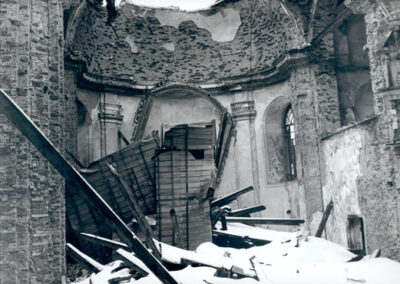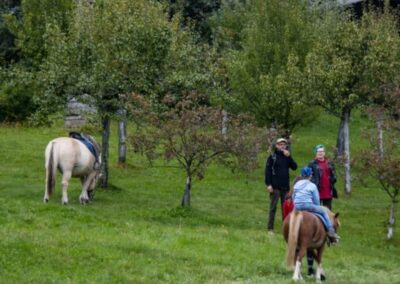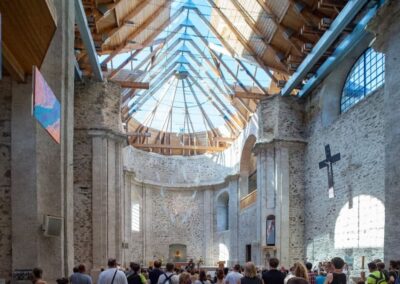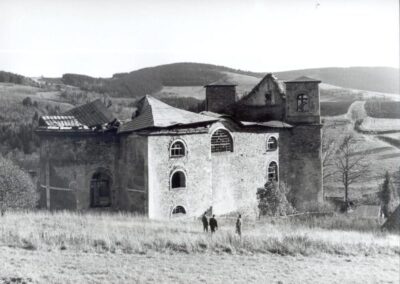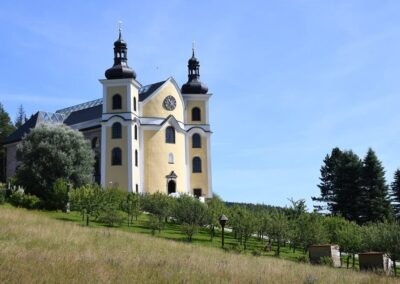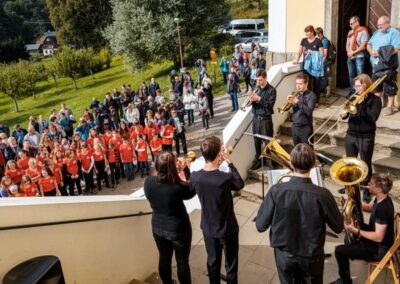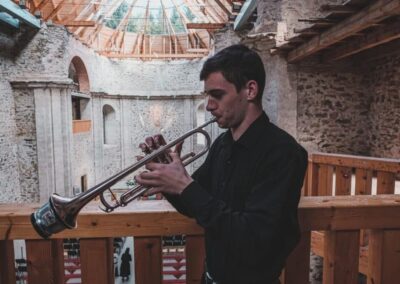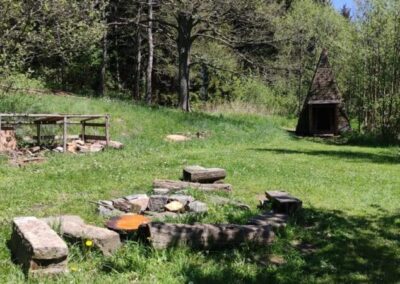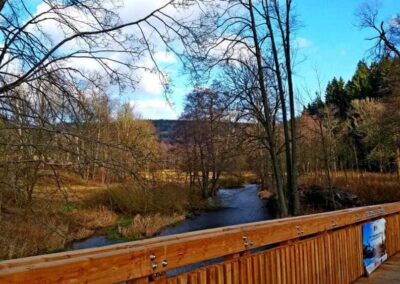Neratov (Bartošovice v Orlických horách)
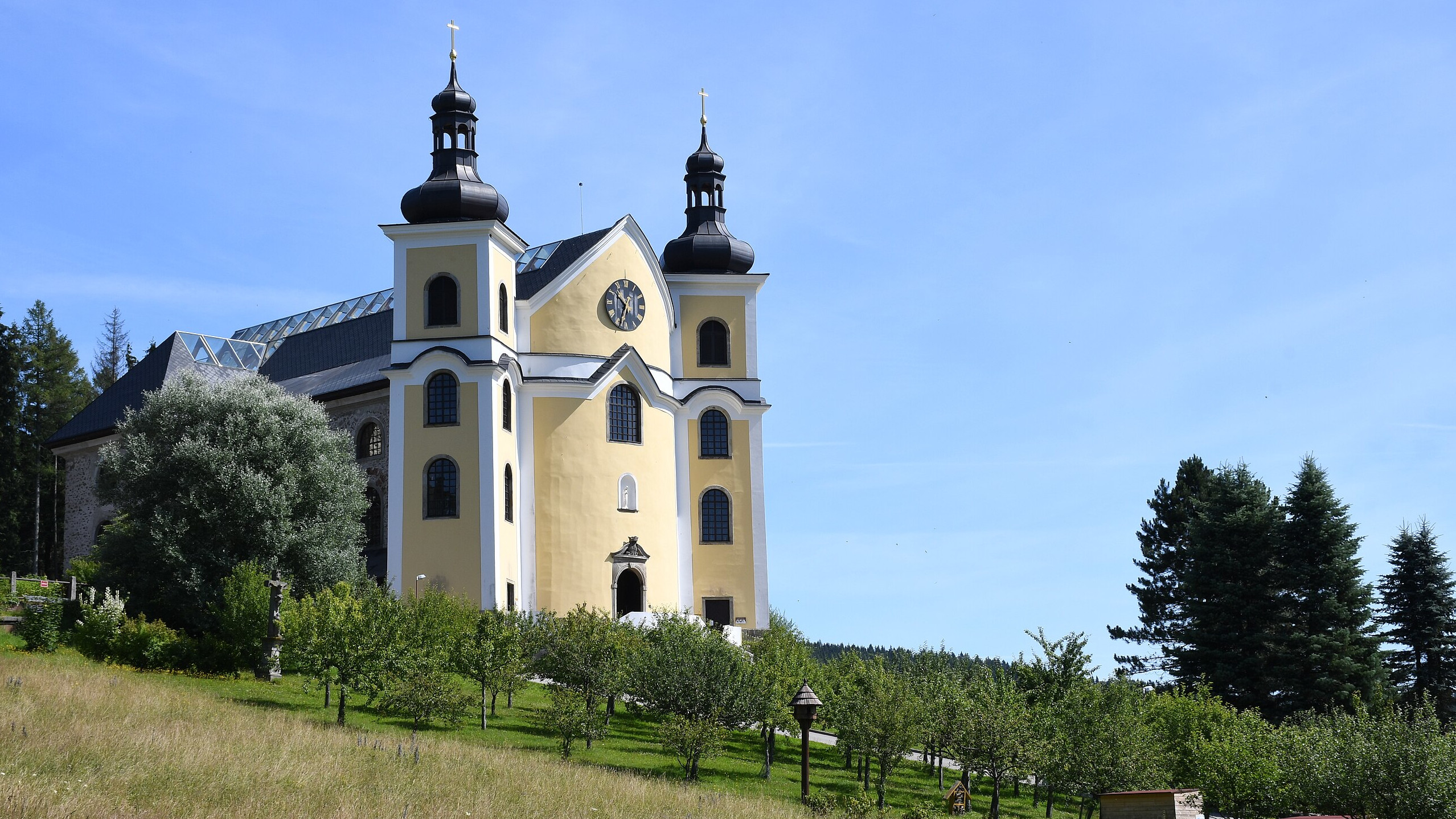
Basic info
Country:
Area:
Population:
Density:
Summary:
References:
https://www.neratov.cz
https://cs.wikipedia.org/wiki/Neratov_(Bartošovice_v_Orlických_horách)
Kulit, Tomáš: Neratov Průvodce místem smíření a naděje, Karmelitánské nakladatelství 2022
https://historycznewieze.bystrzycaklodzka.pl/63/cz-historicke-veze-kladskeho-pomezi.html
https://www.neratov.cz/pro-media/napsali-o-nas/
Keywords
Gallery
"From the very beginning we have been restoring Neratov together with people with disabilities – not for them, but with them!"
Issues Addressed
Neratov, first attested in 1550, used to be a Marian pilgrimage site. Before the war, it had a population of five hundred inhabitants. After the departure of the German population in 1945-6, the village almost disappeared and later was annexed to Bartošovice v Orlických horách. In 1989, the village was abandoned, with a collapsing church and only three permanent residents living there. In 1992, the Neratov Association was founded, whose main goal was the renewal of the village and the creation of a living space with social and community overlap. The foundation was the renewal of the pilgrimage church, which received a new glass roof, and the repair of some other buildings. The village became a recreational and pilgrimage site and returned to public awareness. The result of years of activity is a functioning community, employing people with disabilities, with a number of cultural and community events. The municipality promotes overall sustainable management in harmony with the surrounding countryside.
Approaches and Solutions
The community has had a strong vision from the beginning, which is fulfilled thanks to the activities of the Neratov Association. The parish, led by Catholic priest Josef Suchár, is known for organising pilgrimage festivals in addition to its usual activities. The Neratov Association provides social services in the form of sheltered housing and operates sheltered workplaces focused on various activities.
The association employs project managers to oversee its activities and follows best practices from other Czech non-profits to improve project financing, comply with legislation, and find optimal solutions through knowledge-sharing and consultations. Part of the association’s work includes organising cultural, spiritual and community events throughout the year – concerts, festivals, non-profit weeks, the Neratov pilgrimage festival, the Run of Hope, Menteatrál (a festival of theatres working with people with disabilities) and many other events. The association is involved in expanding into the wider landscape in international projects for the restoration of the Czech-Polish border area.
Due to the scope of its activities, the Neratov Association uses funding from subsidies and grants (for example, the Architectural Heritage Preservation Program for the renovation of the church), and also holds public collections.
Actors and Stakeholders
The main idea came in 1992 from the vicar Josef Suchár, together with the Němec and Malík families, who came to the Neratov Association with the intention of helping disadvantaged people and working with them to restore the pilgrimage site. Currently, the association boasts nearly 250 employees, of which more than 160 are disabled. In addition to the parish, there are individual centres in operation – sheltered housing and sheltered workplaces (maintenance, workshop, gardening, laundry, refreshments, assembly workshop), a day care centre, and an information centre. Sheltered workplaces also include operations for the Neratov Brewery, a pub and a recreational cottage, a community centre and a shop. The association founded and operates the Neratov Elementary Special School.
Challenges and Opportunities
Over the years, the municipality has addressed the overall transformation of the place, its self-sufficiency, the economic and ecological aspects of the functioning of the community, the involvement and education of people with disabilities as well as the increasing recreational burden.
The main problem was fundraising and the lack of supporters and social service workers. The project had to focus only on people with disabilities. Legal restrictions prevented the use of the association’s own products and the energy crisis prevented self-sufficiency. The installation of solar panels, which should have considered self-sufficiency, is difficult due to the protected status of the area (i.e. protected landscape area CHKO Krušné hory).
Outcomes and Lessons Learnt
Neratov is now a sought-after location, with a rediscovered local character. The emphasis on ecology and sustainability is fulfilled by the establishment of social gardening and sheltered workshops that process local products. The buildings are gradually being rebuilt and insulated. The energy intensity of the operations has been reduced.
In recent years, a water management analysis of the area was commissioned, including water consumption, which is high due to recreation and the local brewery. The goal is to effective wastewater treatment, its retention in the landscape, and above all, better use of rainwater – which is currently used for irrigation in horticulture and, in new buildings, also for toilet flushing.
The association supports walking pilgrims: in addition to the possibility of pitching a tent behind the church, two shelters have been built for them and facilities for relaxation have been provided.
In the wider landscape, a new road with a bridge has been constructed, addressing the previously insufficient connection across the border into Poland. Cross-border cooperation continues through further projects focused on lesser-known recreational places.
Future plans include, for example, the construction of a home for seniors,, therapeutic workshops, a community centre, and the establishment of a new Stations of the Cross and a quiet zone behind the church.
Selected major projects and awards
- Establishment of the Neratov Association (1992)
- Establishment of the first sheltered housing – Domov (Home) (1998)
- Restoration of the Church of the Assumption of the Virgin Mary, new facade, glass roof, bells… (Since 2003)
- Establishment of the Orchard of Reconciliation, from original local varieties (2004)
- Restoration and construction of sheltered workplaces, workshops and buildings (Since 2001)
- Establishment of social horticulture, development of sheltered workshops and later establishment of a farm (2008)
- Establishment of the Neratov Primary Special School in Bartošovice (2014)
- Establishment of a day-care facility for people with combined disabilities (2019) Restored trip to Poland by construction of the Jánský Bridge, project Glacensis (2019)
- Projects in the landscape – orchard and pools, protected wetland meadows (Since 2000)
- Winner of the public prize Nonprofit of the Year (2020)
- Cross-border project “Historic towers of the Kladský Borderlands” (2021)
- Msg. Jan Suchár awarded the Order of Tomáš Garrigue Masaryk, 4th class (2024)

